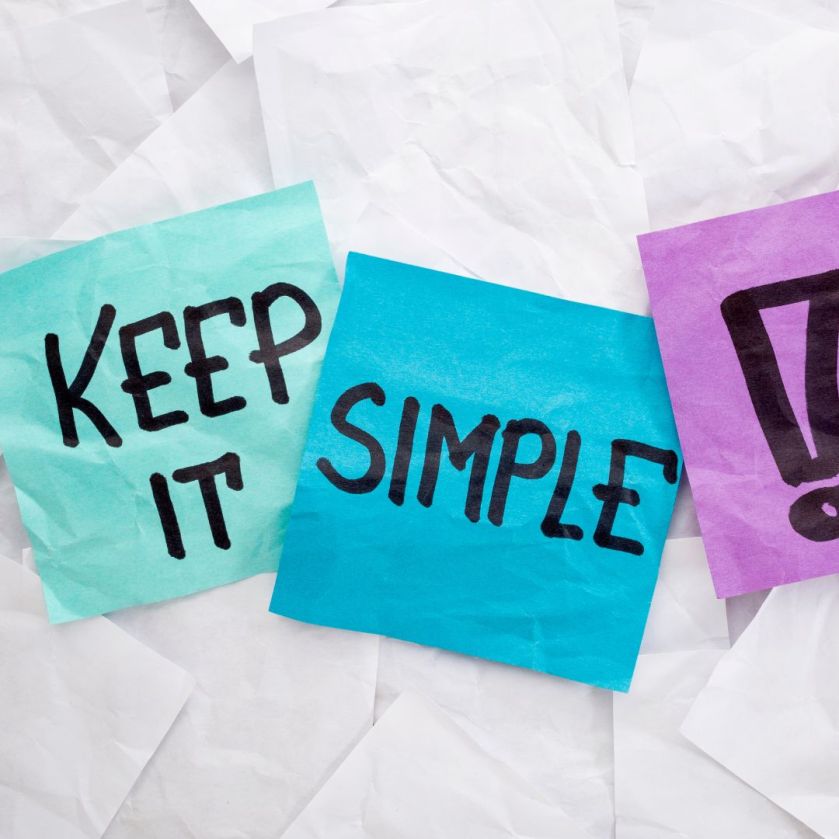The Case For Keeping It Simple

We all want to put our best effort forward when we serve our communities. Often we can get wrapped up in dreaming up ways to make our programs and events bigger, and therefore better. While this instinct is natural, I’d like to posit some ways that keeping recreational opportunities simple can have benefits such as promoting inclusivity and equity, preserving your (and your team’s) sanity, and ultimately help you achieve your programming goals.
Note: For the purposes of this blog post, the words “program” and “event” will be interchangeable.
Promoting Inclusivity and Equity
Running programs require resources, which require money. While each municipality may have a different philosophy on the role of finances in Parks and Recreation, one fact remains true: Every community has residents in varying economic situations. As additional activities are added, the cost of running your event increases, equating to an increase in the fee charged to participants. Sadly, some families are priced out of programs if the fee is too high. While scholarships can help offset this financial challenge, the truth is some families won’t even consider asking for a discount if the advertised price is too high for their situation. By keeping programs focused on one or two central activities or attractions, you can offer a less expensive and more inclusive experience for your community.
Preserving Your (and Your Team’s) Sanity
As more aspects are added to your event, there is more for you and your team to coordinate and manage before, during, and after the event. While everything may look perfect on paper, when you add people to the equation, there are countless challenges that can arise. Maybe a vendor calls and says they will be late. Maybe 10 volunteers signed up to help, but only 5 showed up. Maybe you communicate instructions to a team member in charge of an activity, but as soon as you walk away to check on another area, that person changes the rules (and not in a way that improves the execution). The point is, people all have their own opinions, level of work ethic, personal issues, and unlimited facets that can cause problems that you have to solve.
To be clear, I am not saying people cannot be trusted. This is just a disclaimer to consider who is on your team and their strengths and weaknesses to determine if the additional activities will enhance your program or lead to headaches and unfortunate optics. Know who you can rely on, and what your team can handle at this point in time.
Achieving Your Goals Through Simplicity
Keeping your programs simple actually allows you to more effectively run them at a larger scale in the future. For example, maybe you run a vendor fair that is simply an opportunity for residents to stop by and purchase from the sellers. Once you have the core activity solidified, with safe and effective arrival, setup, and breakdown logistics, you can add another layer if your team can handle it. You can add a simple kids activity like a movie so parents can shop without distraction. Maybe you bring in a food truck or live music. Allow yourself and your team to stand firmly on one step before climbing the entire staircase. Would you rather rush into a full production, be overwhelmed, and potentially encounter safety issues, or would you rather take your time, successfully manage all of the aspects, and run the event you actually wanted to share with your community? Furthermore, you can use participant feedback to build the event around what your community wants.
A Word on Expectations
Residents may have expectations about what a program or event should include, and how things should be run. Often this is based on an event from somewhere else, or an imagined scenario in their head. You can control this to a degree. In your marketing, only advertise activities that you know 100% you can deliver. Allow any additional items to be icing on the cake. As long as you deliver everything that you explicitly promised, you have done your job. You can take feedback into account as ideas, but do not feel like you let anybody down if you hear comments about what “should” have been included in the event. This is your program, and even if you’ve inherited it from someone who held your job previously, you have the right to adjust it to your style and make your own mark on the event.
In Conclusion
There is a place for extravagant Disney-like experiences, but ultimately our work as Parks and Recreation professionals is to foster social connections. It’s not about the shiny attractions you have at your event, but the community experience it offers.

